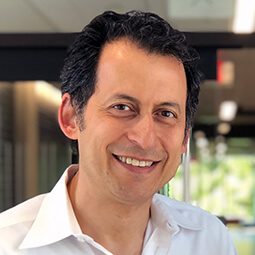Project description
The goal of this SSHRC-funded project is to investigate the syntax of nominal linkers across languages. A well-known example of such linkers is the Persian Ezafe, which links the noun with its modifiers in an iterative manner: N-Ez Mod1-Ez Mod2-Ez Mod3. Starting with the better-studied Persian case known as the Ezafe, in its first stage, the project takes on a systematic comparative investigation of several Iranian languages to establish the properties nominal linkers in each of these languages possess. With the backdrop of the microvariationist study of nominal linkers in Iranian languages, in the second stage of the project, the investigation will be extended to a macro-level by exploring a number of non-Iranian languages, including those for which the existence of nominal linkers has already been noted as well as new ones. The project has three goals: first, to build the first cross-linguistic database of linkers spanning broad areal and genetic classifications; second, to provide a cross-classification of nominal linkers based on a detailed study of their properties in these languages; third, to enhance our understanding of the syntax of linkers and thereby facilitate a deeper understanding of the structure of noun phrases and the architecture of grammar.
Project team
Research Associates
Sahar Taghipour (2023–present; Research Assistant 2018–2023)
My primary research interests are in morphology, syntax and their interface. I have been working on the morphosyntax of Kurdish dialects (Northwestern Iranian) with a special focus on their agreement patterns in nominal and verbal domains. I served as a graduate Research Assistant in the Linker project from 2018 to 2023. The aim of our project is to examine a variety of patterns of nominal linkers across languages and provide accounts and generalization for them. Over the past couple of years, I have been particularly involved in research on a number of Iranian languages commonly known as Reverse Ezafe languages (i.e., Gilaki, Sangesari, Taleshi and Tati). What is of particular interest for our project about these languages is the different behaviour of their nominal linkers compared to that of Ezafe languages, as well as certain similarities these languages share in their nominal patterns. I am currently involved in the Linker project in my new role as a Research Associate at the University of Toronto Mississauga.
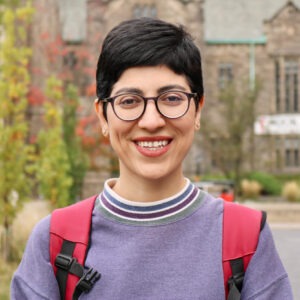
Postdoctoral Fellows
Mojgan Osmani (2023 – present)
I received my PhD from Tarbiat Modares University in 2019. My doctoral dissertation is entitled ‘The Study of Phases in the Structure of Kurdish Sentences’. My primary areas of research interest are case and agreement systems, in particular ergativity. I have just started working as a University of Toronto Mississauga Postdoctoral Fellow in Humanities. I am based in the Department of Language Studies at UTM. My postdoctoral work is focused on the syntax of clitics in Iranian languages, especially central Kurdish (Sanandaji). My research data has recently been expanded to include additional Iranian languages. The variation found in the distribution of clitics in Iranian languages, despite lots of syntactic similarities otherwise, makes them a perfect test case for a microparametric study. I also joined the Linker project at the beginning of September 2023 and look forward to a productive couple of years with this vibrant group.
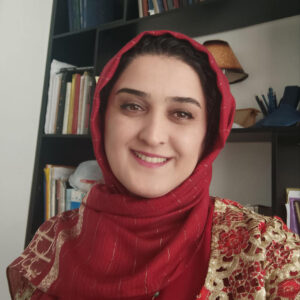
Songül Gündoğdu (2019–2021; Collaborator 2021 – present)
Elahé Omidyar Mir-Djalali Postdoctoral Fellow in Iranian Linguistics
Dr. Songül Gündoğdu received her MA and PhD in Linguistics from the Department of Linguistics at Boğaziçi University in Turkey. In her doctoral thesis, she investigated the event structure and argument structure of simplex and complex predicates in Northern Kurdish (Kurmanji) with a specific emphasis on the syntax of different types of arguments (e.g. postverbal goals, adpositional objects and nominal element of certain noun-verb complex predicates). She was awarded the Elahé Omidyar Mir-Djalali Postdoctoral Fellow in Iranian Linguistics for two years and worked as a postdoctoral fellow in the Syntax of Nominal Linkers project between 2019 and 2021. She is currently working as a faculty member in the Department of the English Language and Literature at Muş Alparslan University, Turkey. Her main areas of research interest are morphosyntactic aspects of Iranian languages – specifically Kurdish and Zazaki, such as the Ezafe constructions in Iranian languages, case and ergativity, argument structure and negation. She is a native speaker of Kurmanji and Turkish, and she is fluent in English.
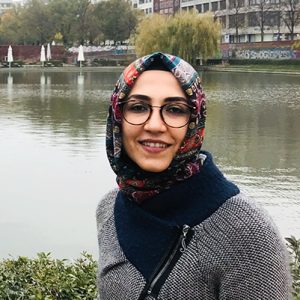
This postdoctoral fellowship was made possible with funds from SSHRC and Roshan Cultural Heritage Institute.
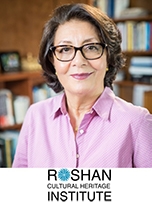 RCHI is a private foundation dedicated to promoting the preservation, transmission and instruction of Persian language and culture around the world. Under the leadership and vision of its founder and chair, Dr. Elahé Omidyar Mir-Djalali, RCHI has provided millions of US dollars in endowments, grants and fellowships in support of Persian-related educational and cultural activities at some of the most esteemed universities and museums in the United States and throughout the world, including the University of Toronto. A native of Iran, Dr. Mir-Djalali holds a Ph.D. in Linguistics from the Sorbonne in Paris, as well as two Master’s degrees, one from the Sorbonne and the other from Georgetown University in Washington D.C, where she taught French language. She also taught Linguistics at the University of California, Berkeley, and spent nearly 15 years of volunteered work translating texts of Sufi masters, from Persian into French and English. She founded Roshan Cultural Heritage Institute in 2000.
RCHI is a private foundation dedicated to promoting the preservation, transmission and instruction of Persian language and culture around the world. Under the leadership and vision of its founder and chair, Dr. Elahé Omidyar Mir-Djalali, RCHI has provided millions of US dollars in endowments, grants and fellowships in support of Persian-related educational and cultural activities at some of the most esteemed universities and museums in the United States and throughout the world, including the University of Toronto. A native of Iran, Dr. Mir-Djalali holds a Ph.D. in Linguistics from the Sorbonne in Paris, as well as two Master’s degrees, one from the Sorbonne and the other from Georgetown University in Washington D.C, where she taught French language. She also taught Linguistics at the University of California, Berkeley, and spent nearly 15 years of volunteered work translating texts of Sufi masters, from Persian into French and English. She founded Roshan Cultural Heritage Institute in 2000.
Collaborators
- Umit Atlamaz, Facebook Reality Labs
- Marcel den Dikken, Hungarian Academy of Sciences
- Songül Gündoğdu, Muş Alparslan University, Turkey
- Monica Irimia, Università di Modena e Reggio Emilia
- Diane Massam, University of Toronto
- Mansour Shabani, Guilan University
- Ur Shlonsky, Université de Genève
Research Assistants
Sable Andrew Peters
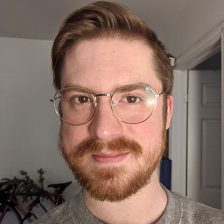
I am a PhD student at the University of Toronto, studying the syntax and semantics of tense and aspect in relation to the event structure of complex predicates, converbs and causative structures. I work primarily on Southern Mongolian, but have done related work on Malagasy and Mandarin. For the Linker Project, I work on Zazaki, an Iranian language spoken in the Kurdish Zone in Eastern Turkey. I am also interested in the deeper questions about why languages require linkers and what a more fulsome investigation of the syntax and semantics of nominal modification can tell us.
Samuel Jambrović
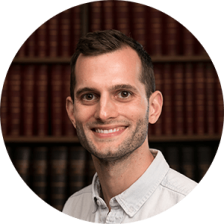
I am a PhD candidate in Spanish pursuing a concentration in linguistics. My thesis explores the structure and interpretation of determinerless arguments in Spanish, focusing on nouns, pronouns, and names. More broadly, I am interested in the morphosyntax and semantics of the noun phrase and work on issues related to roots, gender, and number. With the Nominal Linker Project, I am investigating three phenomena in Central Kurdish: the distribution and form of linkers, the variable position of number morphology, and the expression of definiteness.
Laleh Asadimofarah

I am Laleh Asadi (she/her), a PhD student at the University of Toronto. My interests are in experimental and formal syntax. In experimental syntax, which is a new area for me at the University of Toronto (since Winter 2023), I am involved in a project on Persian Questions whose co-investigators are Keir Moulton and Arsalan Kahnemuyipour. As for formal syntax, I have worked on the case system of Persian. In addition, currently I am working on the agreement system in Ergative constructions in Tarqi, a subdialect of Rāji, a language spoken in Isfahan province of Iran. For the Linker Project, I started my work as a research assistant in Fall 2022 to investigate the variety of linker patterns in some Iranian languages including Tarqi.
Mikayla Oliver
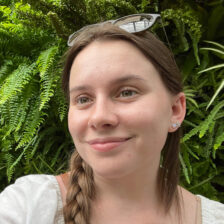
I completed my MA in linguistics at the University of Toronto in 2023. My main research interests are syntax and semantics, specifically looking at quantification in Bantu languages. In the past I’ve worked primarily with Tshiluba but would like to expand my research to other Bantu languages in the future. I joined the linker project as a graduate research assistant in Fall 2022, where I help investigate connectives in Bantu languages!
Former Research Assistants
Jean-François Juneau

Jean-Francois was a PhD student at the Department of Linguistics, University of Toronto. He worked primarily on Kartvelian languages (Georgian, Svan, Megrelian/Laz), especially on their verbal morphosyntax: argument structures, applicatives, and internal aspect marking. He was a member of the Linker project between 2018 and 2020 and worked on nominal linkers in Ossetian.
Sadaf Kalami
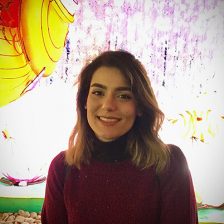
Sadaf completed a Master’s degree at the Department of Linguistics, University of Toronto. Her MA forum paper was on the syntax of the noun phrase in Ardalani Kurdish. She was involved with the Linker project as a research assistant during her master’s studies and later contributed a chapter on nominal linkers in Ardalani Kurdish to a volume co-edited by Sahar Taghipour and Arsalan Kahnemuyipour.
